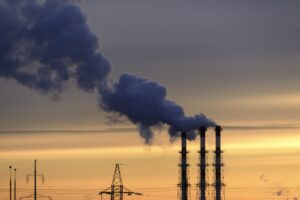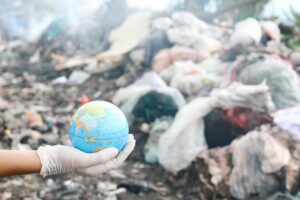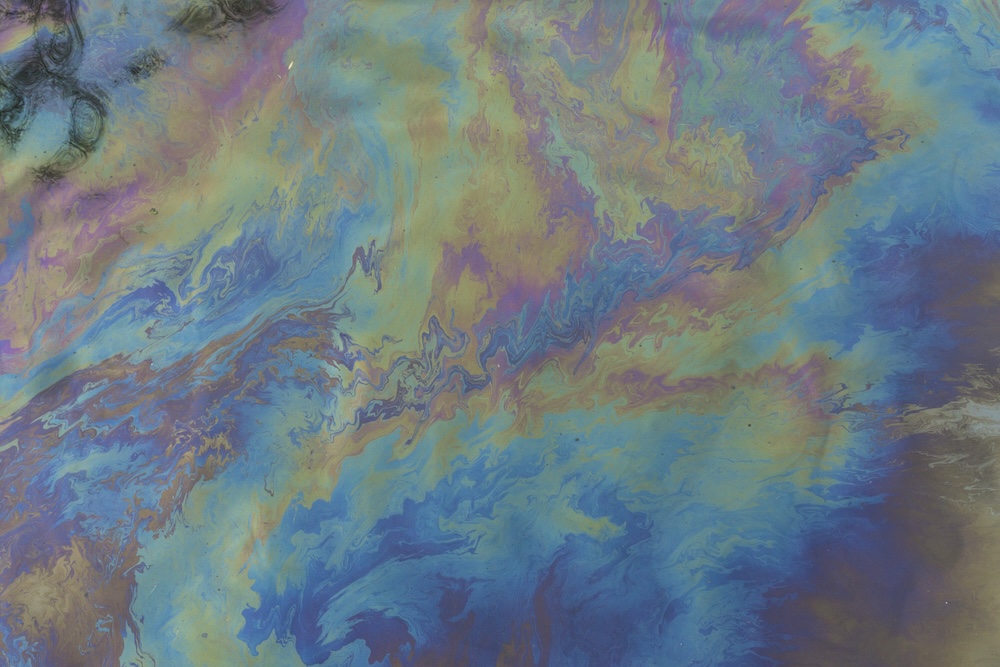When people think of oil spills, they picture dramatic headlines — the Exxon Valdez disaster in Alaska, the Deepwater Horizon explosion in the Gulf of Mexico, or thick black slicks coating beaches. These are indeed catastrophic events, but they represent only part of the story.
The deeper truth is this: most oil spills are preventable. They are the result of human negligence, weak oversight, or risky shortcuts. And they are among the most destructive human-made disasters for oceans and coastal environments, leaving scars that can take decades to heal.
Why Oil Spills Are So Destructive
Oil is toxic to almost every form of life it touches. When crude oil or refined petroleum products spill into water, they spread quickly, coating surfaces, suffocating marine life, and poisoning food webs.
- Physical coating: Oil clogs the feathers of birds and the fur of marine mammals, destroying insulation and buoyancy.
- Toxic poisoning: Hydrocarbons and heavy metals poison fish, shellfish, and plankton at the cellular level.
- Long-term contamination: Oil sinks into sediments, where toxins linger for decades.
- Human impact: Fishing communities lose livelihoods, and coastal tourism collapses under polluted waters and beaches.
Unlike many environmental problems, oil spills are immediate, visible, and devastating.
The Numbers Behind Spills
- Roughly 6,000 oil spills are reported in U.S. waters alone each year, most from small leaks and accidents.
- The Deepwater Horizon spill (2010) released 210 million gallons of oil into the Gulf of Mexico.
- The Exxon Valdez spill (1989) spilled 11 million gallons but devastated an entire region’s ecosystems and communities.
- Worldwide, tanker accidents, pipeline ruptures, offshore drilling failures, and port mishaps account for the majority of spills.
Though large spills make headlines, smaller and chronic leaks quietly add up to even greater long-term harm.
Why Most Spills Are Preventable
- Aging Infrastructure
Leaky pipelines, rusting tankers, and poorly maintained offshore rigs are common culprits. Regular inspections and upgrades could stop many accidents before they happen. - Human Error
Navigational mistakes, poor training, and ignored safety protocols often lead to accidents. Many tanker collisions and groundings are avoidable. - Regulatory Loopholes
Weak laws, inconsistent enforcement, and industry lobbying allow companies to cut corners. In some regions, spills are underreported or ignored altogether. - Risky Operations
Drilling in fragile ecosystems (like the Arctic) or transporting oil through storm-prone waters magnifies risk unnecessarily.
Put simply: oil spills are not inevitable. They are choices — the product of profit-driven decisions that prioritize speed or savings over safety.
Environmental and Human Toll
Marine Ecosystems
- Coral reefs smothered by oil films.
- Fish and shellfish populations poisoned, collapsing local fisheries.
- Long-term declines in plankton, the foundation of marine food chains.
Birds and Mammals
- Sea otters and polar bears lose insulation, often freezing to death in cold waters.
- Birds coated in oil lose flight ability and starve or drown.
- Whale and dolphin populations face reproductive failures from exposure.
Communities
- Fishermen lose income for years, sometimes decades.
- Coastal economies reliant on tourism collapse after spills.
- Indigenous communities lose access to traditional foods and clean waters.
The ripple effects spread far beyond the spill site.
Case Studies
- Deepwater Horizon (2010, Gulf of Mexico): Offshore drilling rig explosion killed 11 workers and spilled oil for 87 days. Billions spent on cleanup, yet ecosystems remain scarred.
- Exxon Valdez (1989, Alaska): Despite decades of cleanup, some species (like herring) never fully recovered. Oil residues remain trapped in beaches and sediments.
- Mauritius (2020): Japanese tanker spill devastated coral lagoons and fishing livelihoods in a small island nation highly dependent on marine ecosystems.
Each case underscores the same truth: spills are catastrophic, long-lasting, and avoidable.
What’s Being Done — and Where We Fall Short
- Technology: Better ship design (double hulls), leak detection sensors, and autonomous monitoring drones reduce risk — but only if implemented.
- Regulation: Some countries have tightened rules post-Exxon Valdez and Deepwater Horizon, but enforcement remains inconsistent globally.
- Response Capacity: Oil spill booms, skimmers, and chemical dispersants exist, but cleanup can rarely capture more than 10–15% of spilled oil.
The real solution is prevention. Once oil hits the water, damage is almost guaranteed.
Can “Clean Energy” Prevent Spills?
Yes. The ultimate prevention strategy is transitioning away from oil altogether. As long as society depends on petroleum for energy, shipping, and plastics, spills remain inevitable. Every solar panel, wind turbine, and electric bus reduces the amount of oil that must be extracted, transported, and risked.
What You Can Do
- Reduce oil demand: Drive less, support clean energy, and cut unnecessary plastic use.
- Support policy: Advocate for stronger spill prevention laws, better enforcement, and investment in renewable infrastructure.
- Hold companies accountable: Support organizations that monitor oil companies and push for justice when spills occur.
- Stay informed: Small spills often go unnoticed; share knowledge to keep public pressure on corporations and governments.
Individual actions may feel small, but demand reduction and collective advocacy ripple into industry and political change.
FAQs
Why can’t we just clean up oil spills effectively?
Oil is sticky, spreads fast, and binds to sediments. Even with modern technology, most cleanup captures only a fraction of spilled oil.
Are dispersants safe?
No. Chemical dispersants used to break up oil can themselves harm marine life and make toxins more bioavailable.
Are offshore drilling spills worse than tanker spills?
Both are devastating, but offshore drilling spills can gush for weeks or months, releasing more oil than most ship accidents.
Do small spills matter?
Yes. Chronic leaks and small spills add up, poisoning ecosystems over time — often without public attention.
Final Thoughts
Oil spills are not “accidents” in the truest sense. They are the result of choices — decisions to drill, ship, and transport oil without adequate safeguards. They are preventable disasters, yet they continue to devastate oceans and communities.
The real dirty truth: as long as society stays hooked on oil, spills will keep happening. Prevention isn’t just about stronger laws and better pipelines. It’s about transitioning away from fossil fuels entirely.
Because in the ocean, every drop of oil ripples outward — killing, poisoning, and unraveling ecosystems we all depend on.









Reader Interactions